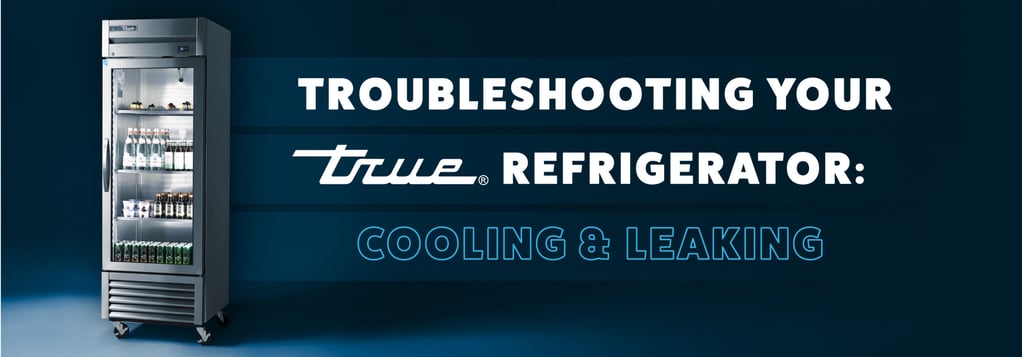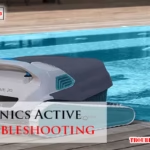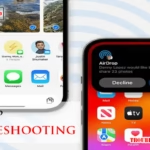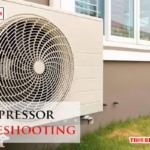Ever found yourself staring at your True refrigerator, wondering why it’s not working as it should? You’re not alone.
Many people face issues with their refrigerators but feel overwhelmed by the idea of fixing them. Instead of calling an expensive repair service, what if you could troubleshoot the problem yourself? This article will guide you through easy steps to identify and solve common issues with your True refrigerator.
Imagine the satisfaction of having your appliance running smoothly again, saving both your time and money. Let’s dive into the essentials so you can get back to enjoying the convenience of your reliable refrigerator.

Credit: www.partstown.com
Common Refrigerator Issues
Refrigerators are a crucial part of our daily lives, keeping our food fresh and drinks cold. But like any appliance, they can run into problems. If your refrigerator is acting up, don’t panic. Understanding common issues can help you troubleshoot and possibly fix them. You’ll save time and potentially money. Plus, it’s always satisfying to solve a problem on your own. Let’s dive into some common refrigerator issues you might face and how to address them.
Refrigerator Not Cooling
Is your fridge not keeping things cold enough? This issue can stem from several causes. First, check the thermostat settings. Sometimes it accidentally gets adjusted to a warmer setting. If the settings are fine, inspect the door seals. Worn-out seals can let cold air escape, reducing efficiency.
Another possible culprit could be the condenser coils. Dust and debris can accumulate on these coils, affecting cooling. Cleaning them might restore your fridge’s cooling power. Regular maintenance can prevent such issues. Have you ever forgotten to clean them for too long?
Water Leaks
Water pooling under your fridge can be alarming. It’s often linked to a blocked defrost drain. Food particles can clog this drain, causing water to leak. Clear the blockage with warm water and a gentle brush. Check if the water dispenser line is secure. A loose or damaged line can also cause leaks.
Another reason might be a full drip pan. This pan collects condensation, and if it’s overflowing, it can lead to leaks. Empty and clean it regularly to avoid this mess. Have you ever had a surprise puddle greet you in the morning?
Strange Noises
Refrigerators aren’t silent, but unusual noises can be unsettling. If you hear rattling, check the placement. Ensure your fridge is level on the ground. Sometimes items inside can vibrate against the walls. Rearrange them for peace and quiet.
Loud humming or buzzing might indicate an issue with the fan or compressor. Listen carefully to pinpoint the source. Cleaning the fan area can sometimes resolve the noise. Have you ever had to play detective to find the source of a mysterious sound?
Remember, while some issues are fixable at home, others might need professional help. Always prioritize safety. Addressing these common problems can extend your refrigerator’s life and keep your groceries fresh. Is your fridge running smoothly, or is it time for a little maintenance?
Quick Fixes For Cooling Problems
Dealing with cooling issues in your True refrigerator can be frustrating. Luckily, there are simple steps you can take to resolve these problems. Understanding some quick fixes can save time and stress. Follow these easy tips to ensure your fridge cools effectively. Let’s dive into some practical solutions.
Check Temperature Settings
Ensure the temperature dial is set correctly. A wrong setting can affect cooling. Verify that the refrigerator is set to a recommended level. Adjust the dial to a medium setting for balanced cooling. Avoid setting it too cold or too warm.
Inspect Door Seals
Door seals play a crucial role in maintaining temperature. Check for cracks or gaps in the seals. Feel around for cold air leaks when the door is shut. Replace damaged seals to maintain cooling efficiency. This prevents warm air from entering the fridge.
Clean Condenser Coils
Dirt on condenser coils can hinder cooling performance. Locate the coils at the back or bottom of the fridge. Dust or vacuum the coils regularly. This improves airflow and enhances cooling. Clean coils help the fridge run smoothly.
Resolving Water Leaks
Discovering water leaks in your True refrigerator can be frustrating. Check seals and drainage for blockages. Regular maintenance helps prevent costly damage and ensures efficient operation. Proper troubleshooting keeps your appliance running smoothly.
Resolving water leaks in a True refrigerator can be frustrating. Yet, it is a common issue that many owners face. Identifying the cause of the leak is the first step. Once you know the source, fixing it becomes easier. In this section, we’ll explore ways to resolve water leaks.Unclog Drain Tube
A clogged drain tube is a common cause of leaks. This tube carries water from the defrost system. When it clogs, water may spill inside the fridge. First, locate the drain tube. It is usually at the back of the fridge. Use a small brush to clean it. You can also flush it with warm water. This helps remove any blockages. Regular cleaning prevents future clogs.Check Water Filter
The water filter plays a vital role. It ensures water is clean and safe to use. A faulty or old filter can cause leaks. Check if the filter is due for a change. Replace it every six months for best results. Ensure the filter is properly installed. A loose filter can also lead to leaks. Always follow the manufacturer’s instructions when installing a new filter.Examine Water Supply Line
The water supply line connects the fridge to the main water source. Inspect this line for any cracks or damage. Even small cracks can cause leaks. Tighten any loose connections. If the line is damaged, replace it immediately. Ensure the line is the correct size for your fridge. A wrong-sized line can lead to improper water flow. Regular checks help prevent unexpected leaks.
Credit: www.katom.com
Addressing Noise Issues
Experiencing noise from your True refrigerator can be bothersome. Identifying the source helps in resolving the issue effectively. Regular maintenance and checking for loose parts can prevent disruptions.
If your True refrigerator is making noise, it can be more than just an annoyance. Strange sounds can indicate underlying issues that, if left unaddressed, might lead to bigger problems. Tackling noise problems early can save you time, money, and stress. Let’s dive into some practical solutions that can help you address these disturbances effectively.Level The Refrigerator
A refrigerator that’s not sitting level can produce annoying vibrations and noises. Use a simple carpenter’s level to check the alignment. If the refrigerator is tilted, adjust the leveling legs at the bottom. Sometimes, placing a small piece of cardboard under the offending leg can stabilize the appliance. This quick fix can make a world of difference. Have you ever noticed how a wobbly chair stops creaking once it’s level? The same logic applies here.Secure Loose Parts
Loose parts can often be the culprit of those mysterious rattles. Start by checking the shelves and drawers inside the refrigerator. Make sure everything is securely in place and not wobbling around. Look at the condenser coil cover and ensure it’s tightly fastened. Have you ever had a loose cabinet door that banged every time you walked by? Tightening a few screws can eliminate the noise entirely.Check Fan And Motor
The fan and motor are crucial components that can generate noise if they’re not functioning properly. Listen closely to identify if the sound is coming from the back or the bottom of the refrigerator. If it’s louder than usual, it might be time for a closer inspection. Carefully clean any dust or debris around the fan and motor. If the noise persists, consider consulting a professional to avoid further damage. Have you ever noticed how a car runs more smoothly after an oil change? Regular maintenance can have the same effect on your fridge. Addressing noise issues in your True refrigerator can be straightforward and rewarding. By taking these steps, you not only solve the noise problem but also extend the life of your appliance. What noise has been bothering you the most? Taking action today could bring you that peaceful kitchen environment you deserve.Maintenance Tips
Troubleshooting a True refrigerator ensures it runs smoothly. Check the power supply and clean the condenser coils regularly. Listen for unusual noises that might indicate a problem.
Maintaining your True refrigerator is crucial for ensuring its longevity and optimal performance. Regular upkeep can save you time and money, keeping your food fresh and your energy bills low. Let’s dive into some practical maintenance tips that you can start applying today.Regular Cleaning Schedule
Keeping your refrigerator clean is the first step in maintenance. A good habit is to clean the interior and exterior surfaces every three months. Use a mild detergent and a soft cloth to wipe down shelves and compartments, preventing any sticky residue or odors from setting in. Remember to clean the condenser coils at least twice a year. Dust and dirt on these coils can reduce efficiency, causing your fridge to work harder and use more energy. Simply unplug the refrigerator, locate the coils (usually at the back or underneath), and gently vacuum or brush away the dirt.Proper Storage Practices
How you store items in your refrigerator can impact its performance. Avoid overloading the shelves; this restricts airflow and can lead to uneven cooling. Instead, organize your items to allow air to circulate freely. Store food in airtight containers to prevent moisture loss and odor transfer. This not only keeps your food fresh but also reduces the workload on your refrigerator, improving its efficiency.Routine Inspections
Conducting routine inspections can help you catch minor issues before they become major problems. Check the door seals regularly to ensure they’re tight and free from cracks. A loose seal can cause cold air to escape, forcing your refrigerator to use more energy. Also, listen for unusual noises. These can be an early warning sign that something is wrong. If you hear anything out of the ordinary, it might be time to call a professional for a check-up. By implementing these straightforward maintenance tips, you not only extend the life of your True refrigerator but also ensure it operates efficiently. What small changes can you make today to boost your fridge’s performance? Remember, a little attention now can prevent big headaches later.
Credit: partsfe.ca
When To Call A Professional
Facing persistent cooling issues with your True refrigerator signals a need for expert help. Strange noises or leaks often require professional attention. A skilled technician ensures effective troubleshooting and reliable repairs.
When your True Refrigerator acts up, deciding on a fix can be tricky. Some issues are easy to solve with basic troubleshooting. Yet, there are times when you should call a professional. Knowing when to reach out for expert help ensures safety and efficiency. This guide will help you understand when professional intervention is necessary.Identifying Complex Problems
Some refrigerator problems can be hard to diagnose. Strange noises could mean a motor issue. Fluctuating temperatures might indicate a failing thermostat. These situations require a professional’s expertise. Attempting to fix these without proper knowledge can worsen the problem.Safety Concerns
Refrigerators involve electrical components and cooling systems. Handling these without proper skills poses risks. Electrical shocks or refrigerant leaks can be dangerous. For safety, leave such repairs to trained technicians. They have the tools and knowledge to address these issues safely.Warranty And Service Agreements
Check your refrigerator’s warranty before attempting any fixes. DIY repairs might void the warranty. Many manufacturers offer service agreements. These cover repairs by authorized professionals. Ensuring your repairs align with these agreements saves costs and protects your appliance.Frequently Asked Questions
Why Is My True Refrigerator Not Cooling?
Check the thermostat settings. Ensure the door seals are tight. Clean the coils for better airflow.
How Do I Fix A Noisy True Refrigerator?
Check if the fridge is level. Inspect and clean fan blades. Tighten any loose components.
What Causes Water Leakage In True Refrigerators?
Blocked defrost drain. Inspect and clean the drain. Ensure the water line connections are secure.
Why Are My True Refrigerator Lights Not Working?
Bulb may be burnt out. Replace with a new bulb. Check the light switch and wiring.
How Can I Reset My True Refrigerator?
Unplug the refrigerator for 5 minutes. Plug it back in. Wait for it to restart.
Conclusion
Troubleshooting a True refrigerator is simpler with clear steps. Regular checks help avoid issues. Listen for unusual sounds. Adjust temperature settings for optimal cooling. Clean coils regularly. Check door seals for gaps. Replace damaged parts promptly. Seek professional help for complex problems.
Understanding basics can prevent costly repairs. Keep maintenance tools handy. A well-cared refrigerator lasts longer. Troubleshooting saves time and money. Remember, small actions make a big difference. Enjoy reliable cooling every day. Stay proactive, stay cool.






